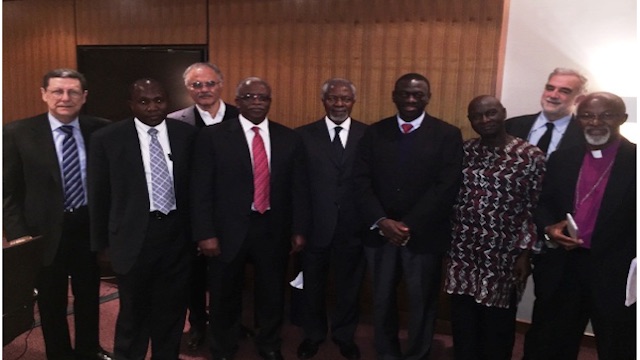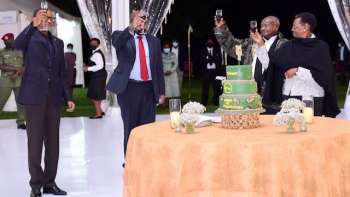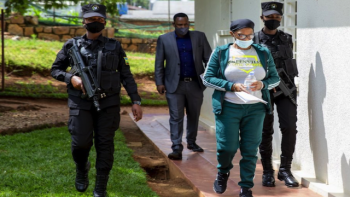Ugandan top opposition leaders, Amama Mbabazi and Dr Kizza Besigye have agreed to form a coalition and run an unified campaign against Ugandan long-running president Yoweri Museveni. The decision was made during a meeting held in London and facilitated by former UN Secretary General Koffi Annan' foundation.
Based on the agreement known as "Statement of Principles", signed by Mbabazi and Dr Besigye on October 29, 2015, the two camps decided to “go into the
elections, as agreed, as a single coalition with one presidential candidate.”
The agreement among the two Ugandan opposition leader appears to be a major step towards forming a strong challenge against President Museveni. Yoweri Museveni has been ruling the country for more than 29 years, and is seen as a dictator who has reverted to changing the Constitution of his country and has relied on the tribal military troops and security forces in order to remain in power.
Both Dr Kizza Besigye and Amama Mbabazi were close allies and members of Yoweri Museveni's inner circle before falling out with him. They are among the founding members of National Resistance army (NRA), the armed rebels who put Museveni into power. After quitting Museveni's party, National Resistance Movement (NRM), the two leaders have formed two separate political parties that, so far, have been running separate electoral campaigns against Museveni.
The Statement of Principles has provided for several changes in how Uganda would be ruled, in case the coalition manages to topple Yoweri Museveni:
- setting up a government of national unity;
- forming a cabinet consisting of the President, Vice President, Prime Minister, two Deputy Prime Ministers, and other Ministers;
- a Prime Minister, with the authority to perform executive functions, who would be nominated by the parties to the agreement. The Prime Minister would then be appointed, but cannot be removed by the President;
- two deputy prime ministers, one from each party to the agreement;
- members of the cabinet whom the president will have agreed upon with the prime minister;
- the “removal of any minister of the coalition shall be subject to consultation and concurrence in writing by the parties to this agreement”.
This agreement appears to set a precedent. Similar attempts to form coalitions have failed before, both in Uganda and in the region.
Hence, the agreement appears to be aimed at avoiding the missteps that led to prior failures, such us the lack of guarantees that an elected President would not decide to sack ministers of the prime minister's party.
That point was a major stumbling block in the neighboring country, the Democratic Republic of the Congo (DRC), when the veteran Etienne Tshisekedi refused to agree with Vital Kamerhe and Mbusa Nyamwisi, on similar terms during the 2010 elections. After the negotiations faltered, both Etienne Tshisekedi and Vital Kamerhe were weakened and Joseph Kabila won elections.
















